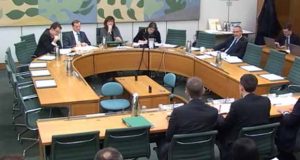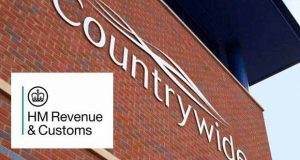
Money laundering doesn’t just affect upmarket estate agents selling expensive London properties, says HMRC chief Simon York, as criminals increasingly target property in all parts of the UK to launder their dirty cash
The 2015 Channel 4 TV series From Russia with Cash was both a gift and a handicap for the government’s attempts to persuade estate agents that they are on the front line of the war against money laundering.
The programme filmed staff from several London estate agencies failing to challenge actors pretending to be loose-lipped Russians keen to launder ill-gotten gains.
On the one hand it dramatically highlighted the challenges that estate agents face when dealing with buyers and sellers of property. But on the other it gave the impression money laundering was a phenomenon restricted to London’s premium, foreigner-focused investment market. Simon York, Director of HMRC’s Fraud Investigation Service, is keen to dispel this myth.
Money laundering fuels human trafficking, drug trafficking, child exploitation and a host of other things which really bring misery to people and communities in the UK.”
Simon York HMRC
“Big estate agents in London do experience higher levels of risk but I think sometimes smaller businesses are seen as soft targets by criminals because they think they might have less sophisticated processes that they can exploit,” he says.
“People bringing in hundreds of millions of pounds into the UK to launder might consider prime London properties, but equally drug dealers or tax evaders in other parts of the country will be interested in local, smaller properties. Just because you’re a smaller or regional estate agent doesn’t mean you’re not in the firing line.”
All agents must be vigilant. Criminals are becoming more sophisticated, both in the way they launder money through assets like property, and their ability to move money internationally. If agents suspect that money laundering may be taking place, they must submit a Suspicious Activity Report to the National Crime Agency. Additionally, estate agency businesses have a responsibility to register with HMRC for anti-money laundering supervision.

Attempts to tackle money laundering have been ongoing for years. But York says it has been given a fresh impetus by several factors. This includes a renewed focus on combatting serious and organised crime, and the global coordination of the war against money laundering by the Financial Action Taskforce or FATF, which also recently praised the UK for its attempts to tackle money laundering. “That doesn’t mean there isn’t any money laundering – it just means they believe we have good systems in place in the UK,” says York.
HMRC has been busy employing its 4,000-strong investigations team to ensure money launderers feel the heat. Last year, the tax authority secured more than £31 million under the Proceeds of Crime Act and successfully prosecuted 18 individuals for money laundering offences and failures to follow regulations.

Over the last three years, it has carried out some 5,000 anti-money laundering interventions across the range of sectors it supervises and last year levied 655 penalties totalling £2.3 million. HMRC treats agents differently depending on how they are – or could be – involved in money laundering cases. This includes:
- Businesses which aren’t as well prepared to spot suspicious activity and can be unwittingly exploited by criminals, and who HMRC says it wants to help with its online guidance, webinars and even one-on-one visits.
- Agents who fail to improve and continue to get things wrong. HMRC then escalates its activity and can impose penalties and even prevent them from doing business.
- And for the most serious, HMRC follows the route of a criminal prosecution.
“As a professional body we play an important role in ensuring our estate agent members are educated and equipped to put in place adequate procedures to safeguard against risks,” says Mark Hayward, Chief Executive of the NAEA Propertymark. “Estate agents must constantly consider the level of identification, verification and monitoring needed to check for money laundering. Taking steps to identify customers is key and where agents identify suspicious activity they must report it.”
You can find more information on this website.
What is suspicious activity?
Unlike the actors in the Channel 4 documentary, spotting a money launderer isn’t so easy in real life. But there are several key activities that should prick up an agent’s ears.
These include clients who try to hide their identity through intermediaries, people who buy properties that they don’t appear wealthy enough to afford, dodgy-looking or withheld documents, clients who are nervous or anxious, being offered unusually high fees to get a transaction completed quickly and clients who come from high-risk countries.
“Estate agents play a really important role because they are meeting people and looking them in the eye and talking to both buyers and sellers of properties; it’s all about flagging up anything that is suspicious, doesn’t ring true or is a contrary explanation about who owns things or where money has come from,” says Simon York.

How to make a Suspicious Activity Report (SAR)
An estate agent’s nominated Anti-Money Laundering officer is the one who must submit an SAR to the National Crime Agency.
Before they can do that, the person involved must register with the NCA online. Once that’s been completed then they are asked to fill in a detailed step-by-step report on the suspicious activity.
This includes whether the person or company involved is a victim or a suspect, their personal and banking details, information on the transaction involved and why the agent or company believes the transaction is suspicious.
 Flag It Up The Negotiator – Flag it up
Flag It Up The Negotiator – Flag it up



